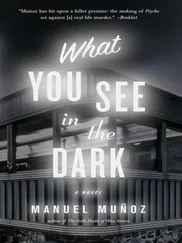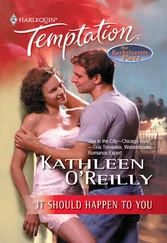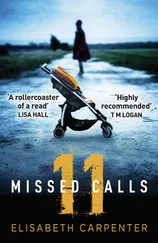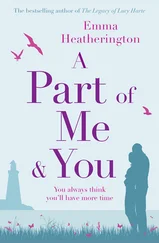He grabbed me by the shoulders, hugged me, kissed me next to my ear. He smelled of tsipouro and smoke and work. His eyes shone in the frozen light of day.
For the port, he says. For you to wear when the fires come so your eyes don’t burn. How do you like them? Try them on. Aren’t they great? Do you like them?
He had a firm grasp on me, wouldn’t let go.
Merry Christmas. Merry Christmas, and here’s to many more. Here’s hoping the bad times are over.
Then he stepped back and pretended he was holding a microphone and looked at me and started to dance and sing.
Your fireproof eyes have shattered me
I’m shattered by your fireproof eyes
Everyone gathered around and watched us drunkenly and clapped and laughed.
That Christmas Eve at work, at a spare parts warehouse in Korydallos, amid laughter and songs with the snow outside covering the world and the world glistening white and cold and harsh as a marble threshing floor.
• • •
That’s why I noticed her at first. Because her hair seemed to have caught fire and be burning without smoke or flames. After the initial shock, I put on my special goggles which I always had with me, hanging from my belt loop, and thought how she deserved to burn up entirely — though she had beautiful hair, thick and golden like a halo — she deserved to burn because she was sitting on the wooden bench, on my bench, my second home. I didn’t like it. It wasn’t right, wasn’t how things should be. It was like coming home from work and finding a stranger with her feet up on your sofa. The way she was dressed wasn’t right either. It was the middle of July and she was sitting there in an overcoat, black pants, and boots. I stopped a ways off and watched her, devoured her with my eyes. She was sitting cross-legged, wrapped in her coat, hands in her pockets, staring through half-closed eyes at the water. And through my special goggles I saw the sun reddening her hair and saw the wind mussing her hair and told myself that I was seeing a tree whose trunk had been blackened by fire and the fire was climbing higher and burning the tree’s thick branches and tender leaves. And right away I gave her a name. I called her the lady with the little coat, because as everyone knows if you give a name to something foreign to you, if you name the thing that’s foreign your fear of the foreign recedes. It didn’t matter that she was too young to be a lady and didn’t look at all like a lady or that her coat wasn’t little but a regular overcoat, black and heavy, down to her knees. It’s still what I called her. The lady with the little coat. Because I needed to give her some name. And because she didn’t have a dog.
• • •
Losing your job is like breaking a limb.
At first you don’t feel anything, Aris said, the break is still fresh and it doesn’t hurt. The pain and the fear come later, when the wound cools. When you remember the rent and the bills and the help wanted ads in the paper. The phone calls each morning, the harsh voices on the other end. Sorry, someone else beat you to it. Call again tomorrow. Send us a resume and we’ll see — these days they want a resume for a job moving furniture. The pain and the fear come later, Aris said. Aris, who got tossed out onto the street with me like cigarette butts without an explanation, just a phone call. Aris, who said he didn’t know what he might do tonight — I might hang myself with my belt, he said, or go down to Faliro and drown myself in the sea. We’ll see. I haven’t decided yet. Depending on my mood. If I had a gun it would be easier. Once and for all, no messing around. The poor guy had taken it to heart, even though we both knew it was coming, we’d known for a while. It was just a matter of time, as they say. You guys in the warehouse they’re going to cut your heads off svin svin svin with a laser, the jaundiced guy over in accounting had been telling us. Svin svin svin, he said to Aris whenever they ran into one another in the hall or the cafeteria. Svin svin svin — and he’d laugh. He was right, the bastard, they threw us out just like that, no laser just a phone call. They called in the morning and by noon we were out on the street. And then something strange happened. As we were leaving, Aris stopped for a drink of water from the spigot by the entrance. July, the middle of the day, incredibly hot. But when he turned on the spigot — it was one of those big garden spigots, with the nozzle turned upwards — the water jumped out at high pressure and hit him in the face and almost knocked him to the ground. I’d never seen anything like it. He jumped backwards as if he’d been shot. He stumbled, gave me this awful lost look. Soaked from head to toe, water dripping from his hair and his collar and his arms. He looked at me and didn’t say a word but his eyes spoke and spoke and spoke. I’m fifty-two years old, they said. With a son in the army and a daughter at the University of Crete. And their mother working four-hour shifts at the supermarket. And credit card debt. And now you and I are out of a job. And I’m fifty-two. So what’s going to happen now? What do we do now? Can you tell me that?
I went over to him, grabbed his arm, took him to the bus stop. When the bus came he got inside and our eyes met through the window. His mouth had run out of words, but his eyes said all kinds of things.
I don’t know if my eyes spoke, or what they might have said to Aris.
• • •
I sat at the very edge of the dock where the cement made a corner with my legs hanging over the inky blue black dark red water with its film of petrol and bubbles and trash. I looked at the lady with the little coat. July, forty degrees in the shade and she’s sitting there wrapped in her overcoat as if she were living in some other season on some other day in some other world. I looked at the ships and water and seagulls diving from up high and they looked back at me with their bloodthirsty yellow eyes. I tried to see everything, to smell and hear everything — the wind and the waves and people’s voices and the hum of the engines. Not to pass the time but so it wouldn’t pass, because time isn’t medicine, it doesn’t heal all wounds, on the contrary, time is the worst doctor, as that Trypes song goes. I looked at the enormous ship, the Lissos, which was about ready to put out to sea and was swallowing people and cars and trucks into its dark belly. I looked at the lady with the little coat who was watching the ship and I said to myself she can’t be traveling anywhere and she hasn’t come here to see anyone off and I said to myself it just isn’t normal — but what else that day had been normal? And then I saw them lowering a big hose from the side of the ship and the water gushing out of it into the sea and I thought about Aris again. How he’d jumped back when the water hit him, how he’d stumbled weakly, how he looked at me when the water slapped him in the face. And I said for sure he wouldn’t hang himself with his belt tonight or go down to Faliro to drown himself in the sea. I said for sure he’d be sitting on the sofa smoking and drinking tsipouro without anise and watching television. Because he’d told me plenty of times. If you’re down or have something on your mind, he said, just turn on the television. It’s the best medicine, just take it from me. TV. For people like us, for poor people, there is no other medicine.
• • •
When the ship left its moorings, when the dock emptied of port officers and passengers and cars, when the waves from the wake stopped slapping the thick tires that lined the side of the dock, the lady with the little coat got up off my bench and went over to the edge of the pier and perched on a mooring bollard. She sat with her hands in her pockets and looked at the ship vanishing off to our right. A pale face, she hadn’t spent much time in the sun. She sat there until the ship disappeared and the smoke from its funnel and the long foamy wrinkles ships leave in their wake as they steam away. Then she kneeled in front of the bollard and pulled three cans of spray paint from her pockets and shook them vigorously and started to paint the black metal of the bollard. It was something else to see. Something else, really. How she moved her hands so deftly and gracefully, switching cans, stopping to correct something then continuing her work hunched over, silent and engrossed — I only saw her raise her head once and look off into the distance in the direction of where the ship had gone.
Читать дальше












